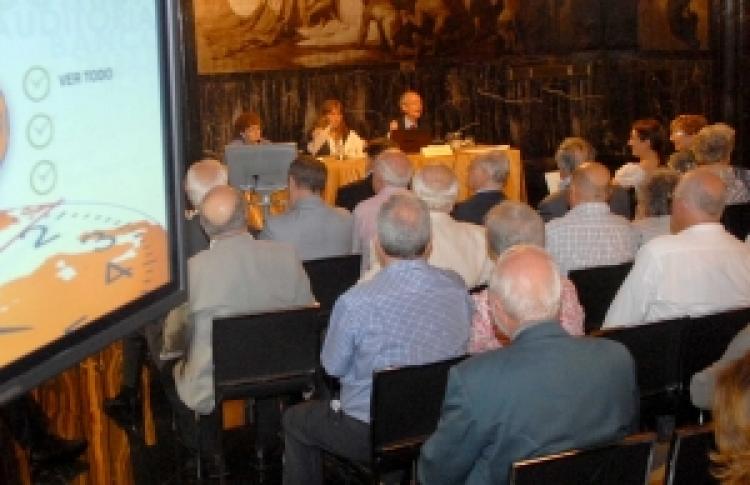Elderly time
On July 11, a conference titled "El temps de la gent gran" (The Time of Older Adults) took place at the Saló de Cròniques of the Barcelona City Council. The conference was delivered by Mr. Ignacio Buqueras i Blanch, President of the National Commission for the Rationalization of Spanish Schedules, and the central theme of the meeting was the use of time after retirement. Irma Rognoni, Councilor for Family, Childhood, Time Use, and Disabilities, and Ms. Assumpció Roset, Commissioner for Senior Citizens of Barcelona, opened the event, which was part of the activities celebrating the European Year for Active Aging and Solidarity between Generations 2012.
The speaker, Mr. Buqueras, focused his speech on the need to introduce changes in the work and personal schedules of our society in order to improve economic productivity and the balance between personal, family, and work life. His proposals include implementing flexible schedules in companies, reducing working hours, and particularly rationalizing our daily schedules.
Spain is characterized by a social and family life organization that stretches schedules significantly. As Mr. Buqueras pointed out, he compared images of a European city and a Spanish city at 9 PM. The Spanish city is vibrant, with children in the streets and stores open, while in Europe, this is already primetime television hour, families are at home, and children are about to go to sleep.
The consequences of these schedules are primarily low productivity and difficulties in achieving work-life balance: long working days, unbalanced domestic schedules, children spending many hours alone, and grandparents dedicating their leisure time to taking care of their grandchildren.
One of the proposals outlined by Mr. Buqueras to address this situation was to return to the European schedule that was in effect in Spain before the Civil War. People would wake up early to take advantage of daylight, have lunch at 1 PM, have an afternoon snack, and dine early, with everyone going to sleep no later than 11 PM. These schedules were lost in Spain after the war due to food shortages and the population's need to have multiple jobs.
Readopting these schedules would eliminate the midday break, shorten the workday, and allow individuals to divide their day into three blocks, as advocated by the workers' rights movements: 8 hours for work, 8 for rest, and 8 for personal life.
Mr. Buqueras also advocated for the need to reduce commercial hours and advance the schedule of TV programs and shows as a measure to rationalize schedules.
At the end of the conference, there were several interventions from the audience, which highlighted the desire of older people to manage and use their newfound leisure time after many years of work for volunteering, further education, or enjoying their new life.
You can find more information about the ARHOE Association and the European Year for Active Aging and Solidarity between Generations 2012 in the "Laboratori del temps" section of our website.

